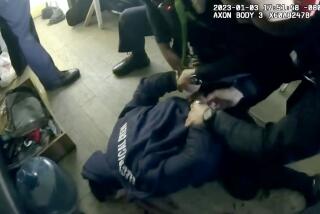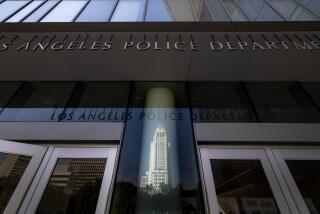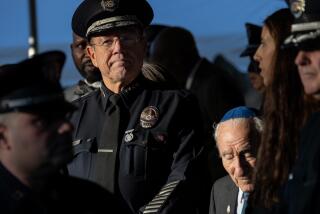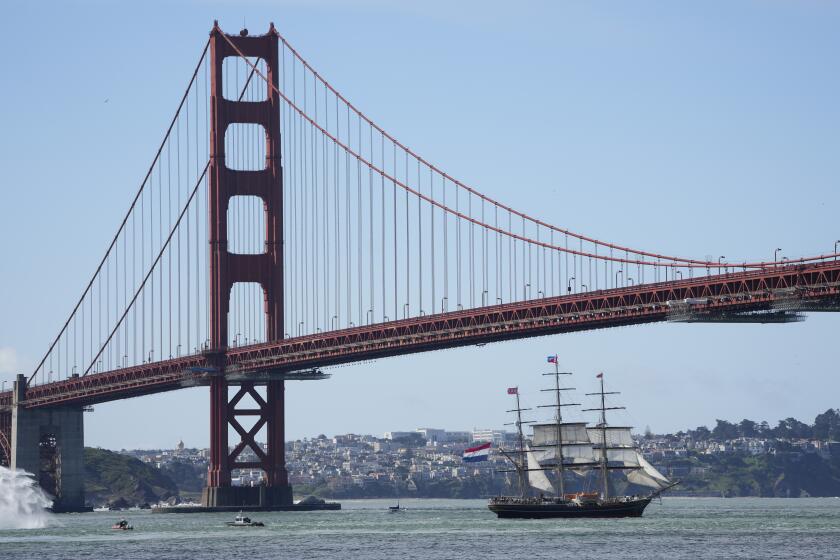South L.A. frustrated by LAPD’s lack of transparency in 2 fatal events
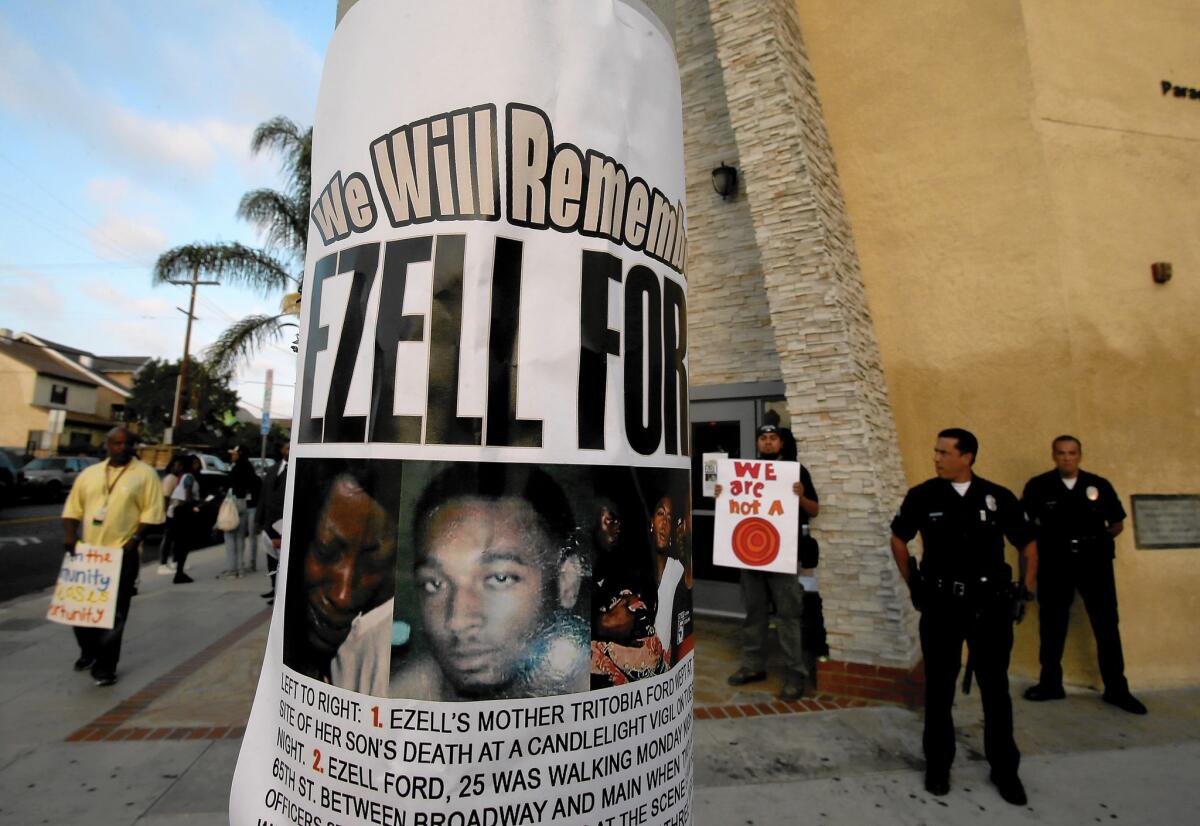
Three months after police fatally shot a mentally ill man in South Los Angeles, key questions remain about what led to the controversial shooting and exactly how the 25-year-old was killed.
Los Angeles Police Department officials have yet to allow the county coroner’s office to publicly release the results of an autopsy on Ezell Ford Jr. following his Aug. 11 death, and have not explained why gang officers approached Ford before the shooting.
Some South L.A. residents say they are frustrated by how little information has been disclosed and accuse the department of failing to make good on Chief Charlie Beck’s promise of transparency after the killing. Last month, the South Central Neighborhood Council unanimously passed a resolution urging Councilman Curren Price to direct the LAPD to release Ford’s autopsy report.
“Every day that goes by where the secrecy is maintained just increases the frustration,” said Cliff Smith, a member of the nine-person Neighborhood Council who introduced the resolution. “There’s no way to resolve this except to be transparent. And the police have been the opposite of transparent.”
Price said in a statement that he understood both the community’s frustrations and the department’s need to follow its procedures in completing the investigation.
“But I am prepared to take further actions if we do not get some answers for the community soon,” he said.
An LAPD spokesman said the department intends to provide more details about the shooting in the future, but is wary of releasing information now that could taint the ongoing investigations. Cmdr. Andrew Smith said police are still trying to identify witnesses and want to ensure that anyone who speaks with investigators is relaying information they saw firsthand, not what they read in news reports or heard on the street.
Smith said the department has had difficulty finding witnesses, despite investigators canvassing the neighborhood, passing out fliers and making repeated public appeals for help. The department is planning to hold a press conference Thursday to again urge witnesses to come forward.
“We are committed to being transparent in this case, as we are in all cases,” Smith said. “But these kinds of investigations, as detailed and as thorough as they are, they take some time … even though we’re pushing as hard as we can to get these things done.”
Craig Harvey, chief of investigations at the coroner’s office, said it was unusual to see a months-long security hold on an autopsy involving a police shooting. Such holds, he said, generally last only a few weeks — though he could recall cases where holds lasted much longer, including the fatal 2008 shooting of LAPD SWAT Officer Randal Simmons.
In the days after the Ford shooting, the LAPD said he was walking home on West 65th Street near Broadway when he was approached by two gang officers assigned to the LAPD’s Newton Division. Police allege that Ford tackled one of the officers and reached for his gun, prompting both officers to open fire. But a witness who said she saw part of the incident told The Times she saw no struggle.
Beck promised local residents he would release the names of the involved officers and the autopsy results. The department has released no other details about the killing since disclosing the officers’ names on Aug. 28.
In addition to Ford’s case, the South Central Neighborhood Council called for the release of an autopsy of a man who died after a physical confrontation with two LAPD sergeants. Omar Abrego, 37, died Aug. 3, about 12 hours after he was arrested by two gang unit sergeants also assigned to the department’s Newton Division.
Coroner’s officials said Abrego’s autopsy was done but a final report was not complete because a cause of death had not been determined.
Days after Abrego’s death, coroner’s officials said an initial report showed he was under the influence of cocaine. Since then, LAPD officials have asked the coroner’s office to place a security hold on the case, prohibiting information from being publicly released.
Smith, the LAPD spokesman, said the hold was requested because investigators were continuing to search for potential witnesses. He said LAPD investigations of police force typically take seven to eight months. Beck, he said, has indicated to investigators that the Ford and Abrego cases “are to be their highest priority.”
Smith said the department has reached out to lawyers representing the families of both Ford and Abrego to ask for help in reaching witnesses, but has met with little success.
Steven Lerman, who represents Ford’s family, told The Times he found witnesses by canvassing the local area. He said he had no control over whether the witnesses spoke to the LAPD and added that many residents in the area distrust the police. The witnesses’ accounts do not justify the shooting, he said, but he declined to detail what the witnesses told him.
The neighborhood council’s resolution said the lack of information surrounding the deaths “has led to increased concerns in our community that the LAPD is trying to conceal the truth of how these men died.”
“The families and the community have a right to know how and why these men were killed,” the resolution said.
Merrick Bobb, a policing expert who is currently monitoring reforms at the Seattle Police Department, said police departments should err on the side of transparency when it comes to officer-involved shootings.
“Absent an extraordinary circumstance, one should get all the information about an officer-involved shooting out to the public as soon as it becomes available,” he said.
More to Read
Start your day right
Sign up for Essential California for news, features and recommendations from the L.A. Times and beyond in your inbox six days a week.
You may occasionally receive promotional content from the Los Angeles Times.
